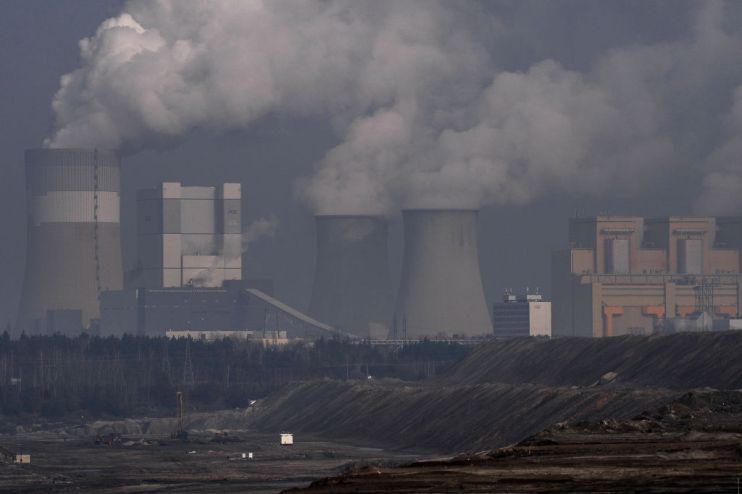UK banks reduce fossil fuel financing 31 per cent last year – but will the trend continue?

Most of the UK’s largest banks cut back on fossil fuel financing last year but activists argue the sector needs to make firmer commitments to ensure it meets its net zero commitments.
According to an annual report from the Rainforest Action Network, the FTSE 100’s five banking giants lent $35.7bn to fossil fuel companies in 2022, down from $51.6bn in 2021.
Barclays and HSBC put the most money into fossil fuels, lending $16.5bn and $11.0bn respectively. However, this was down 23 per cent year-on-year at Barclays and 44 per cent at HSBC.
Standard Chartered lent $5.1bn, down from $7.1bn the year before, while Natwest cut its fossil financing by 37 per cent to $1.2bn.
Lloyds was the only UK bank to increase funding for fossil fuels. It put $1.8bn into fossil fuel companies in 2022, a $500m increase on the year before. However, since the Paris Agreement in 2016 it has lent less in fossil fuels than any UK bank included in the report.
Although the FTSE banks reduced their financing for fossil fuels, they remain substantial contributors to the fossil fuel industry.
Natasha Ion, co-author of the report, said: “The largest UK banks remain key backers of climate destruction through their financing of the fossil fuel industry.”
Although some banks have put in place specific fossil fuel financing plans, Ion suggested the reduction was more likely a result of economic uncertainty and a lack of demand from energy companies who saw bumper profits last year from rising energy prices.
In fact they pointed out that the decrease in total financing reflected a drop underwriting due to bond market volatility in 2022. Excluding underwriting, lending for fossil fuels decreased just two per cent.
Ion said this suggested the banks’ policies, which are mainly focused on lending, had a “negligible effect on reducing financing”. They suggested that the lenders needed to put more stringent rules on further fossil fuel lending.
“For UK banks to step down from their positions as top financiers of climate chaos they need to quickly deepen their commitments to exclude financing any further fossil fuel expansion, including not just upstream projects, but also midstream infrastructure and all companies still planning on expansion,” they said.
The news comes as banks are under growing pressure to show that they are serious about moving away from fossil fuels.
The news comes as banks are under growing pressure to show that they are serious about moving away from fossil fuels.
In December last year HSBC said it will stop funding new oil and gas fields in a move that activists said set a “new minimum level of ambition”. Lloyds also committed to stop funding new fossil fuel projects last October.
Earlier this year Natwest said it will stop offering loans to customers hoping to fund oil and gas exploration.
Barclays meanwhile has been criticised for setting less ambitious targets. In February it put tighter restrictions on funding coal projects and said it would stop funding oil sands exploration.
However, many critics argue banks’ policies do not go far enough given the urgency of the climate crisis.
“Fossil fuel companies are the ones dousing the planet in oil, gas, and coal, but big banks hold the matches,” April Merleaux, research and policy manager at Rainforest Action Network, said. “Without financing, fossil fuels won’t burn,” she said.
An HSBC spokesperson said: “Supporting clients in high-emitting sectors to decarbonise will have the most significant impact on emissions reduction in the real economy and accelerate an orderly transition.”
“Companies will need access to finance to ensure that there is a transition, so our policies allow the ongoing provision of general purpose corporate financing, where the client’s transition plan is aligned with our own net zero targets and commitments,” they continued.
A Barclays spokesperson said: “We believe that Barclays can make the greatest difference by working with our clients, focussing on facilitating the finance needed to change business practices and scale new green technologies.
“We have provided over £87bn of green finance since 2018, and we have achieved a 32 per cent reduction in our financed emissions from the energy sector (coal, oil, gas and natural gas liquids) since 2020. We have also committed to phase out coal financing by 2030 in the OECD and EU and by 2035 in the rest of the world,” they continued.
Natwest did not respond when contacted for comment. Standard Chartered and Lloyds declined to comment.